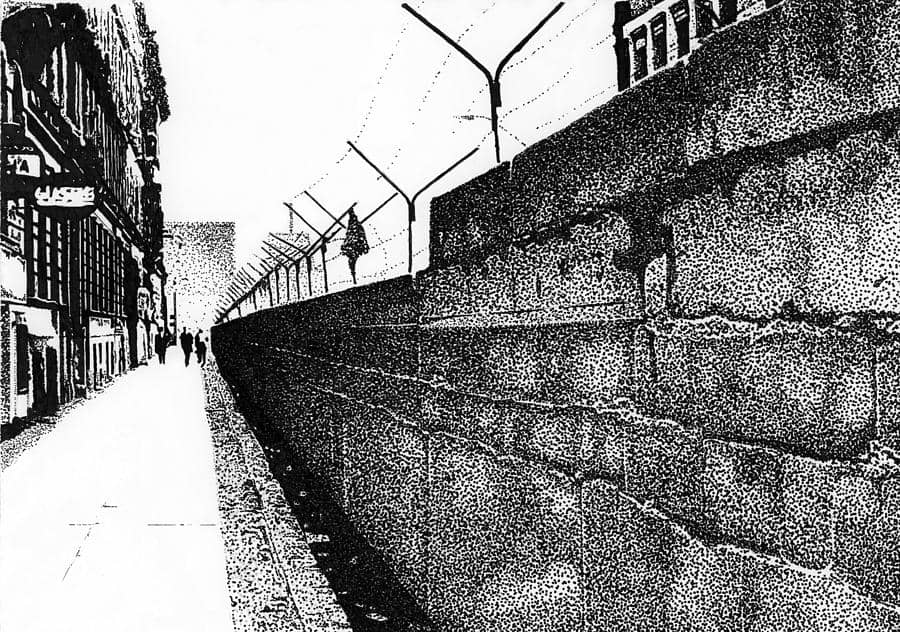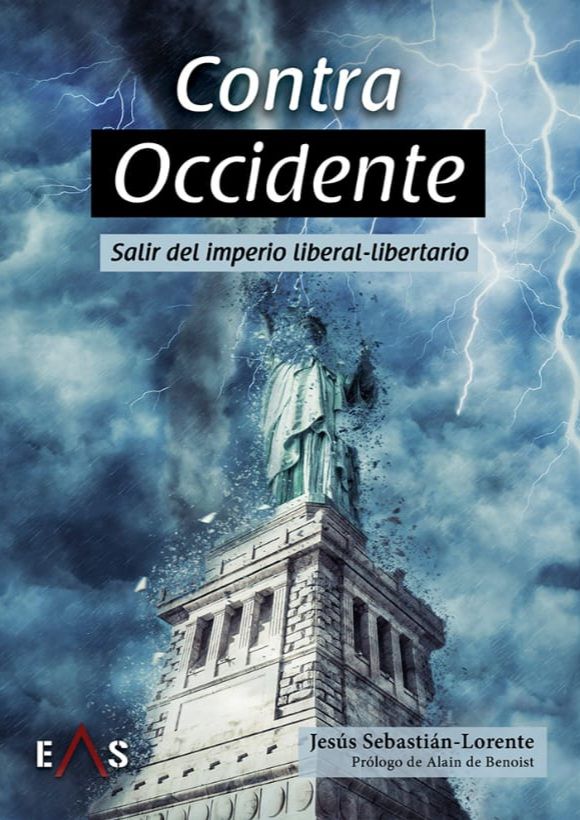The United States extols the virtues of competition, but hates having competitors. It also hates the idea of a multipolar world. The United States emerged from World War II as the great victor, and its entire foreign policy for ages has been to thwart the emergence of rival powers that might threaten its hegemony. Europe having already been neutralized and vassalized, they are left with China and Russia, which they seek to weaken by all means.
In order to do this, they have a first-rate tool at their disposal with the NATO bases. NATO, which should have disappeared at the same time as the Warsaw Pact, has today become the “global NATO;” that is to say, an international police force, charged with protecting American interests all over the world, while exercising on its allies what General De Gaulle called its “heavy tutelage.”
By bringing the former Eastern Bloc countries into NATO, the United States sought to challenge and encircle Russia. High-ranking American political scientists, such as Henry Kissinger, John J. Mearsheimer, George Kennan, Paul Nitze, Robert McNamara and many others had already warned in the 1990s of the dramatic consequences of NATO’s expansion to Russia’s borders, which Kennan called a “fateful mistake.” The Americans have never ceased to assert that Ukraine should also join NATO.
In The Grand Chessboard (1997), Zbigniew Brzezinski explained why: “America must absolutely seize Ukraine, because Ukraine is the pivot of Russian power in Europe. Once Ukraine is separated from Russia, Russia will no longer be a threat.”
The Least Concealed Coup d’état in History
Since Montesquieu, we know that there are those who start wars and those who make them inevitable. The United States and NATO have done everything to make war unavoidable. A war that did not start in February 2022, but in 2014, since 14,000 people were already dead in Donbass when the Russian army intervened.
The coup of February 22, 2014, the so-called Euro-Maidan, prepared, organized and financed by the United States (to the tune of 5 billion dollars)—”the least concealed coup in history,” said the American political scientist George Friedman—was not intended to make Ukraine more democratic, but to make it more Western; that is to say anti-Russian. It allowed the removal of President Yanukovych, legitimately elected in 2010, and to bring to power a team of pro-Westerners whose first legislative act was the abolition of the Russian language as an official language.
In 2019, they were succeeded by a puppet government, corrupt to the core, largely dominated by the underworld and headed by Volodymyr Zelensky, a former show business king. The Americans, during all this time, never ceased to threaten, ignore and humiliate Russia.
True to the Monroe Doctrine, the Americans have never allowed foreign intervention in their sphere of influence, while constantly intervening in those of others. Since the Cuba affair in 1962, it is well known that no American president would accept that Russian rockets be deployed in Canada or Mexico. Why should Putin accept that American rockets be deployed in Poland and at the gates of Russia?
Ukraine’s integration into NATO was an existential threat to the Russian Federation. In other words, a red line that must not be crossed. The West crossed it, leaving Vladimir Putin no choice but to resort to military action to satisfy demands that could never be met by political or diplomatic means. This is what happened on February 24.
The Russian People: The New Pariahs
Putin, who has no intention of recreating the old USSR (which in 2010 even more Ukrainians than Russians regretted: 62% against 45%) knows on the other hand that a country’s security depends largely on the notion of strategic depth, which implies a buffer state. Cutting short a new Ukrainian offensive to retake the Donbass by force, which was planned for late winter, Russia’s “special military operation” had three immediate causes: NATO’s willingness to push right up to Russia’s doorstep; the Kiev government’s stubborn refusal to implement the Minsk agreements of September 2014 and February 2015, which provided for both Ukraine’s territorial integrity and Donbass’ autonomy; and the continued atrocities against the Russian-speaking civilian populations of Donbass.
The Americans, who of course never bombed civilians (Hiroshima), nor attacked a sovereign country (Iraq), nor illegally crossed a sovereign’s country’s borders (Afghanistan, Libya, Somalia), and even less bombed a European capital (Belgrade), reacted according to the usual Anglo-Saxon tactics of sanctions and embargo (which are the modern version of the blockade) and of moral disqualification, accusatory inversion, the dumbing down of public opinion by emotional propaganda, media blitzing and the criminalization of the enemy (Putin mad dictator, paranoid war criminal, new Hitler, bloodthirsty butcher, etc. ). This tactic makes it impossible to return to peace through a negotiated settlement of the conflict, since one does not negotiate with a “criminal” or a “madman.”
In the manner of Cancel Culture, the prevailing Russophobia now discredits everything that is Russian, from Dostoyevsky to Solzhenitsyn, through Gagarin, all victims of the same reductio ad Putinum. Tennis players, musicians, disabled people and even Russian cats are excluded from shows, museums or competitions.
The aim is to turn the Russian people into a new pariah. Hate speech, once decried, is now even allowed on social networks, if it is anti-Russian speech.
The objective is clear. If Russia cannot be vaporized, it is a question of putting it in the dock of nations, of stigmatizing it for eternity, of cutting it off definitively from Germany, France and Western Europe, thanks to a cordon sanitaire that would isolate it from the rest of the world. From this point of view, it is in the interest of the Americans to ensure that the war lasts as long as possible. In Washington, we are ready to fight to the last Ukrainian. In 1956, the Budapest insurgents had no such support.
A New Iron Curtain
It is obviously impossible to say that “we are not waging war on Russia” and at the same time to decree against it sanctions of unprecedented magnitude, to publicly advocate a “total economic and financial war on Russia” (Bruno Le Maire) and to supply arms to the Ukrainians.
The Europeans have obediently accepted to undertake sanctions against Russia, of which they will be the first victims because these sanctions are contrary to their own interests, especially in terms of energy and industry (Russia is more self-sufficient than Europe).
By delivering heavy weapons and airplanes to Ukraine, not to restore peace but to prolong the war, the Western countries have taken the serious risk of being considered as cobelligerents.
We have thus left the post-Cold War era. A new Iron Curtain has been set up; this time at the initiative of the West. The Eurasian continent is again cut in two. Finland and Sweden want to join NATO, Switzerland is abandoning its neutrality, Germany is contributing 100 billion euros, and the European Union is taking on the role of arms supplier, while those who yesterday militated for the abolition of all borders are proclaiming that those of Ukraine are inviolable. A historic turn. The consequences of which will also be historic.
The former Czech president, Václav Klaus, said it bluntly—taken hostage by NATO, Ukraine is from the beginning “only a pawn on the chessboard of a larger game.” The first loser of this affair is indeed the unfortunate Ukrainian people, today bombed by the Russians after having been cynically used as a pawn on the American strategic chessboard.
The other big losers are the Europeans who, by aligning themselves almost unanimously with the American positions, have demonstrated once again that they count for nothing. An independent and non-aligned Europe could have worked for a political settlement of the conflict, for a negotiated agreement, as well as for the reconstruction of a new space of collective security on a continental scale, respecting the interests of Europeans as much as those of Russians. It could also have had the equivalent of the Monroe Doctrine.
But this is not what happened. By flatly aligning itself with Anglo-Saxon diktats and adopting measures that are as much oil on the fire, the European Union has lost all credibility.
We are not Westerners, but Europeans
There are in fact two distinct wars going on at the moment. The first one is a fratricidal war, since it opposes two countries coming from the same historical matrix and which remained associated for centuries—but it is not a civil war. It is not a war between two nationalisms, Russian and Ukrainian; but rather a war between the logic of the nation-state and that of the empire (which has never had an ethnic dimension in Russia).
But it is also a proxy war, a war by proxy of Washington against the Kremlin through Ukraine. This also reveals the deep nature of the second war, that of the United States against Russia.
A war that goes far beyond Ukraine, since it is a war of the worlds—a war for or against liberal hegemony, a war of civilizational states against rootless universalism, of peoples concerned with their historical continuity against “open societies,” of the forces of rootedness against the forces of dissolution, of continental powers against “maritime democracies” (United States, Great Britain, Australia, Canada). A war of global significance. A war for world power.
This means that the appeals to “Western solidarity” of Joseph Robinette Biden, the living dead man in the White House, leave us cold—for the excellent reason that we are not Westerners, but Europeans.
Alain de Benoit is the well-known thinker and philosopher of what is known as the New Right. He is the author of numerous books and articles. This article appears through the kind courtesy of the journal Éléments and Sylvette Imatz.
Featured: “Iron Curtain,” by Lyle Brown, dated 2011.


